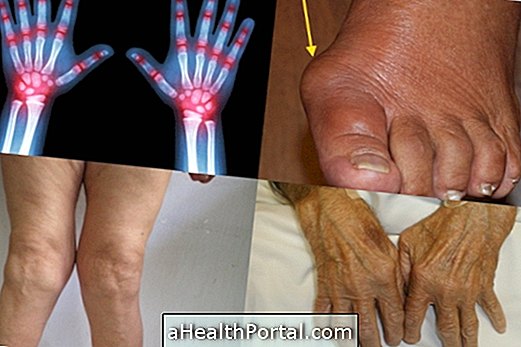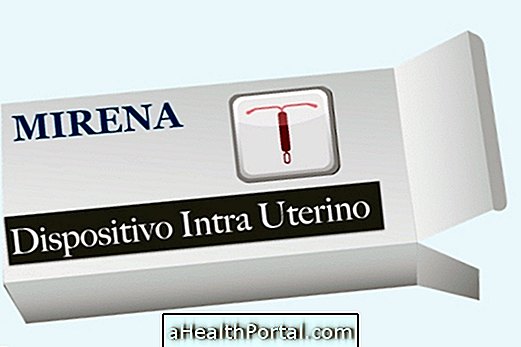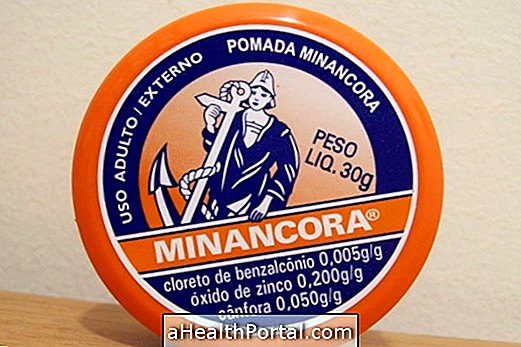Bariatric surgery, also called gastroplasty, is a stomach reduction surgery that is indicated for weight reduction in case of morbid obesity associated with complications such as diabetes and hypertension, for example.
There are different methods to do this surgery, and it can be performed on individuals over 18 years of age and who have failed to lose weight with other treatments. After surgery, it is necessary to follow a strict diet and practice physical activity regularly to promote weight loss and the proper functioning of the body.
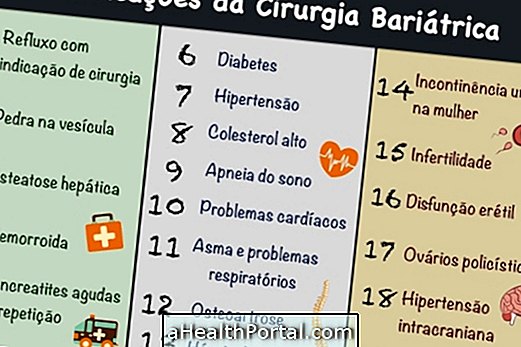
Price of bariatric surgery
The price of bariatric surgery can be between 10, 000 to 30, 000 reais, and the amount varies according to the type of surgery, the location selected and the surgeon.
This surgery can also be done by the SUS, but it is a time-consuming and complicated process, since only more severe cases of morbid obesity associated with health complications are usually approved. In addition, it is also necessary to prove that other treatments for weight loss, with medical monitoring and nutritionist, did not work.
When to do bariatric surgery
Bariatric surgery can be done in cases of morbid obesity or when the BMI is greater than 35 kg / m2 and one of the following diseases is present, according to the Federal Medical Council:
However, only patients who have not had clinical and nutritional treatment results for at least two years can undergo surgery.
Put your data in the IMC Calculator and see if you are fit to have the surgery:

Types of Bariatric Surgery
The main types of bariatric surgery are:
1. Gastric band
This surgery is indicated as the first option because it is non invasive, consisting of a brace that is placed around the stomach to reduce space and cause satiety sensation more quickly. Usually surgery is faster, has fewer risks and a faster recovery.
Since there is no alteration of the stomach, the gastric band can be withdrawn after the person has managed to lose weight without causing any permanent change. That way, people who use this type of surgery, should also follow up with a nutritionist to maintain the diet after removing the band, avoiding re-fattening.
2. Vertical Gastrectomy
It is a type of invasive surgery usually done in people with morbid obesity in which a part of the stomach is removed, reducing the space available for food. In this technique the absorption of nutrients is not affected, but the person should follow a diet with the nutritionist, once the stomach can again dilate.
Since it is a surgery that removes a part of the stomach, there are greater risks as well as a slower recovery, which can take up to 6 months. However, this type of surgery has a longer lasting result, especially in those who have difficulty following a diet.
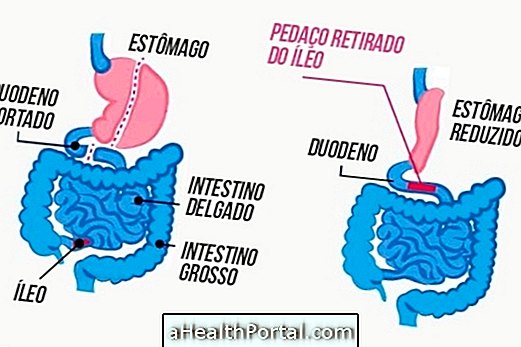
3. Endoscopic Gastroplasty
It is similar to gastrectomy, but in this surgery the doctor makes small stitches inside the stomach to decrease its size, rather than cutting it. This way, there is less space for food, allowing you to eat less food and lose weight. After the weight loss, the stitches can be removed and the person returns to have all the space of the stomach.
This surgery is indicated mainly for those who can not lose weight with exercise and diet, but who is able to maintain a balanced diet.
4. Gastric Bypass
It is usually used in people with high degrees of obesity who have used other less invasive techniques without result. This technique helps to lose weight fast because it greatly decreases the size of the stomach but is irreversible.
5. Biliopancreatic derivation
In most cases it is indicated for people who can not follow a diet and are morbidly obese, even after trying other bariatric surgeries. In this type, the doctor removes a part of the stomach and the intestine, reducing the absorption of the nutrients, even if the person eats normally.
People who have had biliopancreatic diversion generally need to use a nutritional supplement to ensure that there are plenty of vitamins and minerals important to the body's functioning.

How is the postoperative
The postoperative period of bariatric surgery requires food care, first making a liquid diet and then a pasty diet, switching to normal solid food only 30 days after the operation. In addition, it is necessary to take the dietary supplements prescribed by the doctor to avoid problems due to nutrient deficiencies, such as anemia and hair loss, for example.
Learn more about recovery after bariatric surgery.
Women who wish to become pregnant after the operation should wait about 18 months to initiate attempts to conceive, as accelerated weight loss can hinder the baby's growth.









